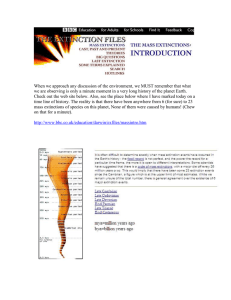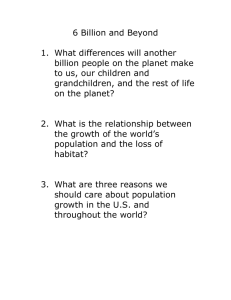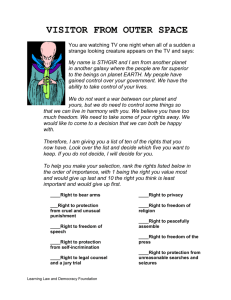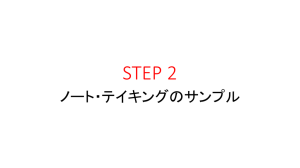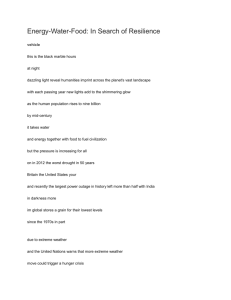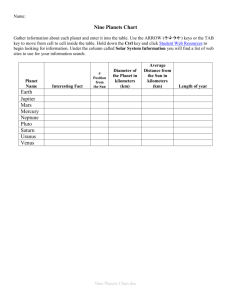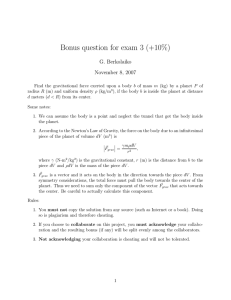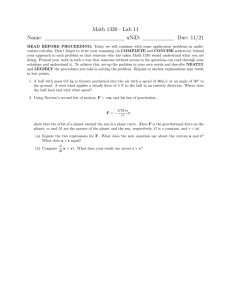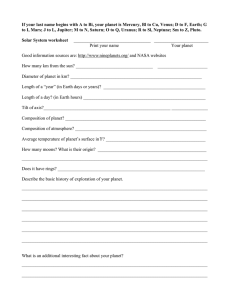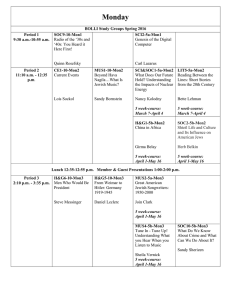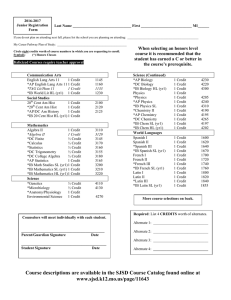The course aims to provide students with an engaging and
advertisement
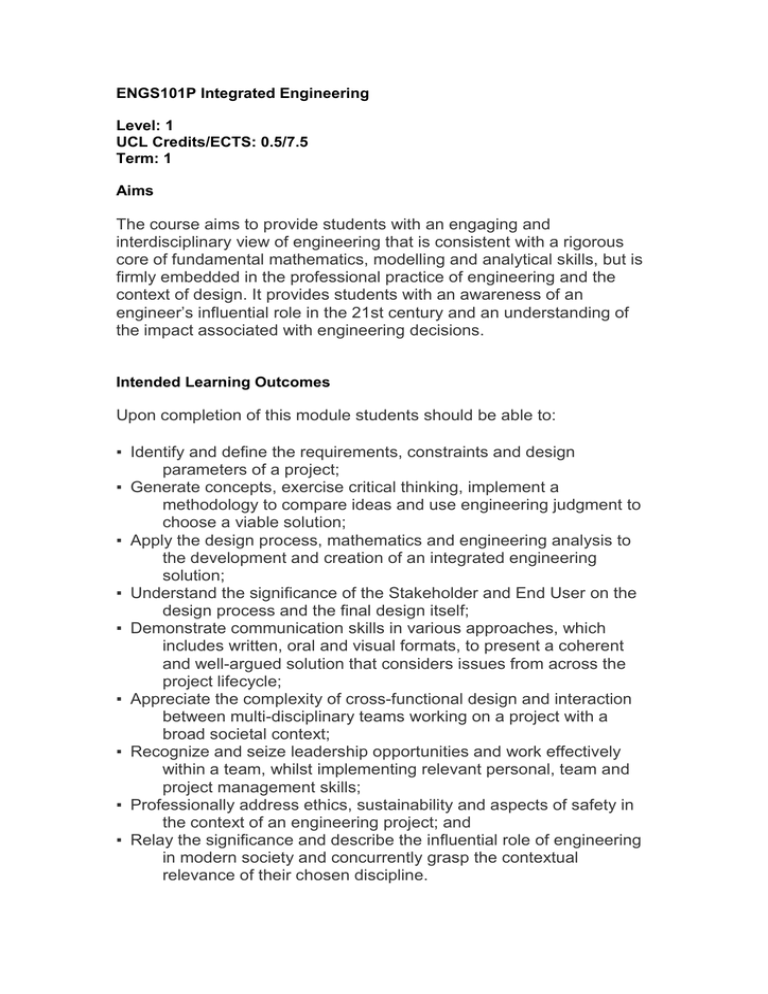
ENGS101P Integrated Engineering Level: 1 UCL Credits/ECTS: 0.5/7.5 Term: 1 Aims The course aims to provide students with an engaging and interdisciplinary view of engineering that is consistent with a rigorous core of fundamental mathematics, modelling and analytical skills, but is firmly embedded in the professional practice of engineering and the context of design. It provides students with an awareness of an engineer’s influential role in the 21st century and an understanding of the impact associated with engineering decisions. Intended Learning Outcomes Upon completion of this module students should be able to: ▪ Identify and define the requirements, constraints and design parameters of a project; ▪ Generate concepts, exercise critical thinking, implement a methodology to compare ideas and use engineering judgment to choose a viable solution; ▪ Apply the design process, mathematics and engineering analysis to the development and creation of an integrated engineering solution; ▪ Understand the significance of the Stakeholder and End User on the design process and the final design itself; ▪ Demonstrate communication skills in various approaches, which includes written, oral and visual formats, to present a coherent and well-argued solution that considers issues from across the project lifecycle; ▪ Appreciate the complexity of cross-functional design and interaction between multi-disciplinary teams working on a project with a broad societal context; ▪ Recognize and seize leadership opportunities and work effectively within a team, whilst implementing relevant personal, team and project management skills; ▪ Professionally address ethics, sustainability and aspects of safety in the context of an engineering project; and ▪ Relay the significance and describe the influential role of engineering in modern society and concurrently grasp the contextual relevance of their chosen discipline. Syllabus The module, and its learning outcomes, has been structured around two major five-week integrated design challenges. The universally significant and topical themes of ‘Sustainable Planet’ and ‘Global Health’, correspondingly linked to the UCL Grand Challenges have been chosen as our focus. The two Challenges have been set up such that each offers a new and creative experience for the students. The learning outcomes of the second Challenge build from those designated to the first. Similarly, the student’s depth of technical knowledge and experiences are expected to progress from the outcomes of the first, setting a baseline from which to build in the second. At the end of the course a comprehensive set of learning outcomes will have been achieved. The Challenges have also been aligned to facilitate the student’s practice and exploration of the ‘design cycle’. The first Challenge has been designed to give students the time to exhaust and engage in the investigative, creative, critical thinking, conceptual and iterative steps within the upper half of the design cycle, whilst the second Challenge is heavily focused on having the students design, model, make/prototype and test their way to a unique design. Challenge #1: Sustainable Planet (SP) Yr1 T1 Weeks 1 –5 Sustainable Planet (SP) is the first of the 5-week IE Challenges and will run through weeks 2 and 6 of the first term in Year 1. The Year 1 student cohort across the faculty will be divided into 10 groups and each group will be assigned a Country. The group of students will attend weekly design workshops together, but will be working in small teams to design a solution for the first Challenge. The Country groups will comprise a mix of students from all disciplines and therefore the small teams will be completely inter-disciplinary. The Sustainable Planet Challenge will focus on Energy for Homes and the ‘problem/need statement’ that will be put forth to the student cohort is as follows (subject to refinement). Define what could be described as ‘sustainable energy for household use’ appropriate to your assigned country and then brainstorm, design and chose a viable 21st century Sustainable Energy Strategy or Solution for the benefit of those who live in your country. Challenge #2: Global Health (GH) Yr1 T1 Weeks 7 – 11 Global Health is the second of the 5-week IE Challenges and will run through weeks 8 and 12 of the first term in Year 1. The student teams in the Challenge #2 are different than those of Challenge #1. Departments have been paired up and the students will be working together in the weekly design workshops. The Department Partnerships are as follows: (1) CE/BE, (2) CS/EEE, (3) CEGE/ME and (4) MPBE. Each of the department partnership student groups will be broken down into ‘specialist’ teams of 4-6 students. One or two of the specialist teams from each of the Departmental Groups will also make up parts of an Integrated Consulting Team. There will be 20 Consulting Teams, each assigned with the task of designing a multi-disciplinary solution for the second Challenge. The Global Health Challenge will focus on The Production and Distribution of a Vaccine for Tuberculosis (TB) Pandemic in Sub Saharan Africa and the ‘need statement’ that will be put forth to the student cohort is as follows (subject to refinement): Work together as an Integrated Consulting Team of specialist engineers to formulate, design and verify an effective strategy for the production and distribution (and monitoring) of a vaccine to combat a Tuberculosis Pandemic in Sub Saharan Africa. Prerequisites Core for Taught by None All Emanuela Tilley, Tarit Mukhopadhyay Eva Sorensen Noor Al-Rifai (CE TF) Terence Leung David Wright Manish Tiwari Helen Cheng Marta Betcke Neil Curson Ioannis Papakonstantinou Emanuela Tilley Francesca Medda David Wright Manish Tiwari Kate Crawford Tristan Robinson Manni Bhatti Assessment Weighting Coursework 100% practical assessment Design submissions, Video Presentation,
